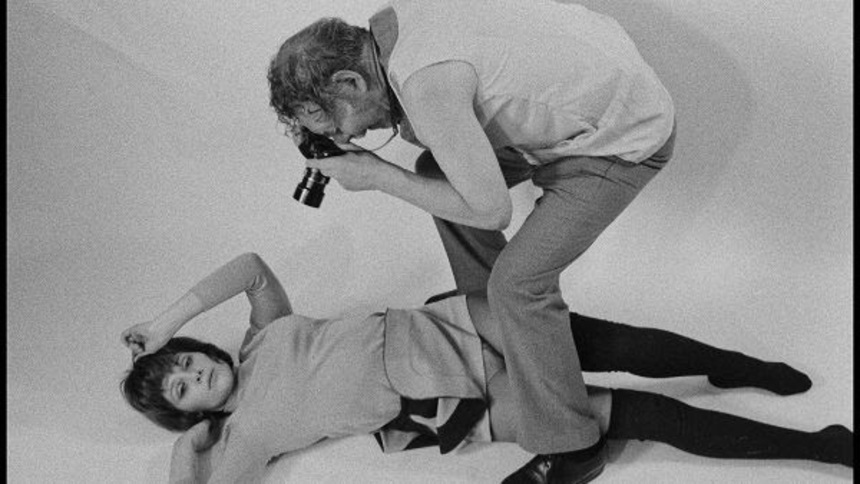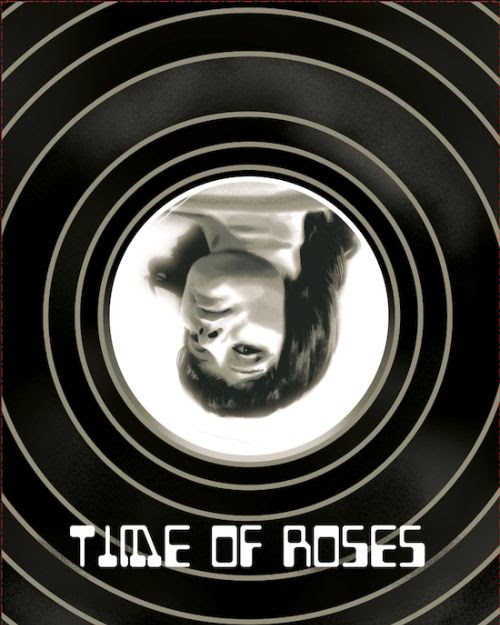TIME OF ROSES Blu-ray Review: Uchronic Romances are Always Political

There is something unique about science fiction films of the late 1960s and early 1970s. At least in films from western countries, they were made at a time of great political upheavel, a time when space travel and exploration was at an incredible height, and a time when there was also something of a 'back to the land' movement. The cold war and the threat of nuclear annihilation loomed large, many were beginning to sound the alarm of environmental degredation, while at the same time, the rise of technologies like computers and marked the first appearance of what would become the internet.
Risto Jarva's seminal Finnish New Wave film Time of Roses, while not lost, has likely not been on a lot of people's proverbial radars for the science fiction of this era: a film set in the future, but still deeply embedded in the social and political times of its creation. Influenced as much (if not more) by pop art, other new wave cinemas of mid-20th century Europe, as well as the unrest happening in much of Europe, and the country's proximity to the USSR, give it a unique perspective that Jarva explores in this evocative and off-kilter film. Deaf Crocodile is releasing a Blu-ray (available in the USA for the first time), with a 4K restoration completed with the Risto Jarvis Association, and many special features. But even if it was just the restoration it would be worthwhile, as both a fascinating film unto itself and a time capsule of sci fi narratives of the era.
Raimo (Arto Tuominen) has become fascinated with a long-dead and somewhat minor model called Saara (Ritva Vepsä) whose claims to fame seem to have been nude modelling, possibly lying about needing money for abortions, and dying under strange circumstances. He meets a woman who looks remarkable like the dead model, Kisse (also played by Vepsä). He wants to recreate the circumstances of her life and death, and follows Kisse and her possibly mirroring lifestyle in order to convince her to participate, while those around him see how increasinly unhinged and obsessed he's becoming.
It would seem that Jarva and his co-screenwriter Jaakko Pakkasvirta were somewhat prescient in their invented history. There are discussions of late 20th century Europe as starting to fall once again under the spell of fascism, of social and political upheaval, and how finally democracy prevailed through the abolition of the class system. But it seems that they were also prescient in people realizing that they were stil under the influence of propaganda, that all was not right with this seeming utopia, and the moodpills characters are taking did not disguise the continued unrest hinted at, just beyond those characters we encouter who seem to benefit more from this supposed utopia.
But Raimo's actions are decidedly political; with strong influences from Vertigo, and also (again, presciently) taking on the fan obsession that would become more prevelant in the 21st century with the use of technology, his desire to recreate Saara through Kisse is as much, if not more, about himself and his standing in his culture than it is about finding out the truth of Saara's life and death. Kisse's free-love lifestyle (a nod to 60s culture) seems at first the antithesis to his more 'cultured' and seemingly more artificial existence, but both he and Kisse are victims of an existence that denies the reality of their world, just one in which he, in the end, will have more power.
The production design is both a mix of what was seen as the future by filmmakers of the time, and also more of a nod to the pop art of the day that presumed and prized a kind of laid-back neutrality, a blissed-out mentality. Analog controls still predicted digital printing and video conversations, while the prevelance of airbeds and furniture more suited to a pool look decidedly uncomfortable yet have a thematic significance of seeming openness but inherently fragility hidden in plain sight.
The restoration gives the film a fresh look, and certainly it's one that needs to be rediscovered. A host of extras add to the terrific package put together by Deaf Crocodile.
Special Features
• Risto Jarva, Työtoverini (Risto Jarva, My Colleague), 1984, 59 min., dir. Antti Peippo – a rarely-seen Finnish TV documentary featuring archival interview footage of Jarva and clips from his films
• Two of Jarva’s brilliant, unconventional short films from the 1960s: his wildly satirical deconstruction of TV advertising, Pakasteet (Frozen Foods), 1969, 15 min. , and his Mod / Pop Art-influenced documentary Computers Serve (Tietokoneet palvelevat), 1968, 14 min.. (Both in Finnish with English subtitles.)
• Deleted scene and original song "The Swallow Tower" (Pääskytorni) performed by Otto Donner cut from TIME OF ROSES
• Original trailer
• New commentary by film critic, professor and programmer Olaf Möller
• New essay by filmmaker and critic Ville Suhonen of the Risto Jarva Association
• Newly translated extracts from Risto Jarva’s writings
• Blu-ray authoring by David Mackenzie of Fidelity In Motion
• English SDH subtitles
A Time of Roses
Director(s)
- Risto Jarva
Writer(s)
- Risto Jarva
- Jaakko Pakkasvirta
- Peter von Bagh
Cast
- Arto Tuominen
- Ritva Vepsä
- Tarja Markus








